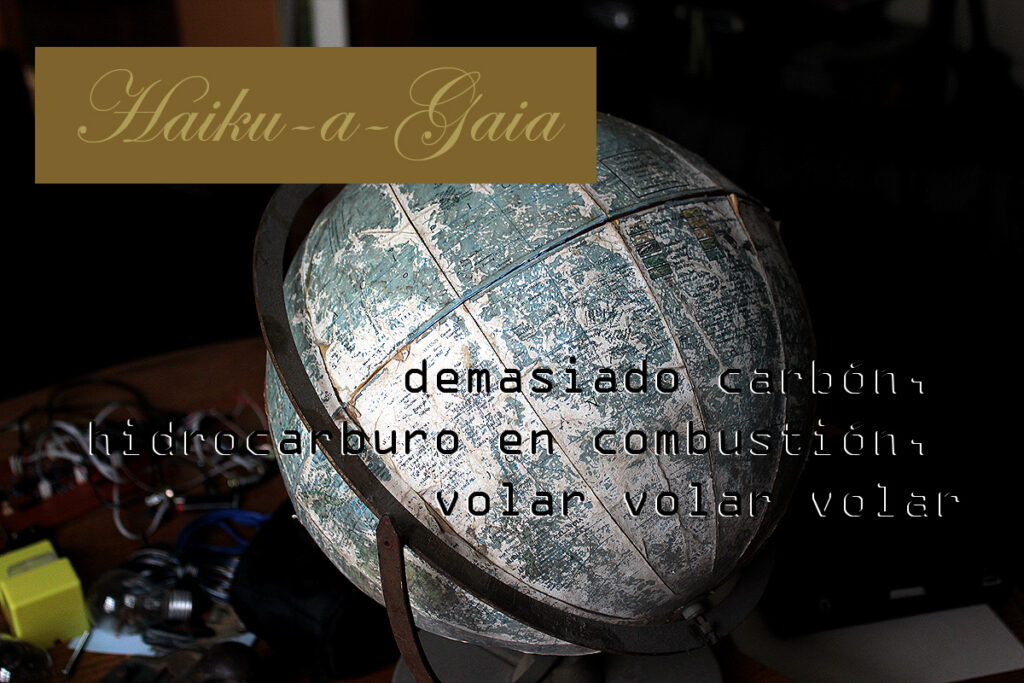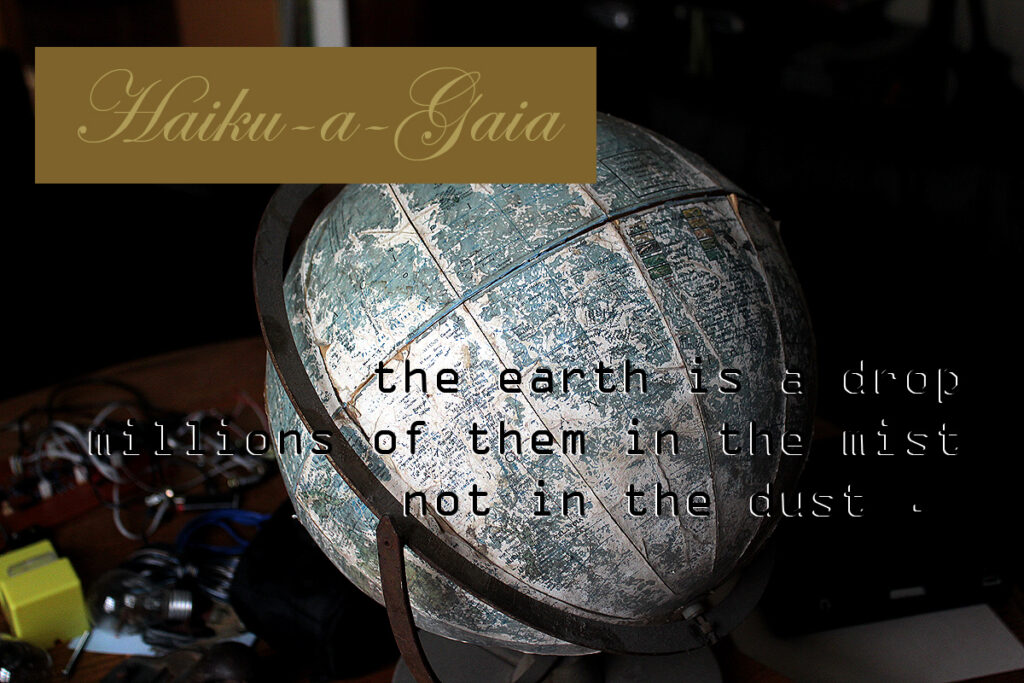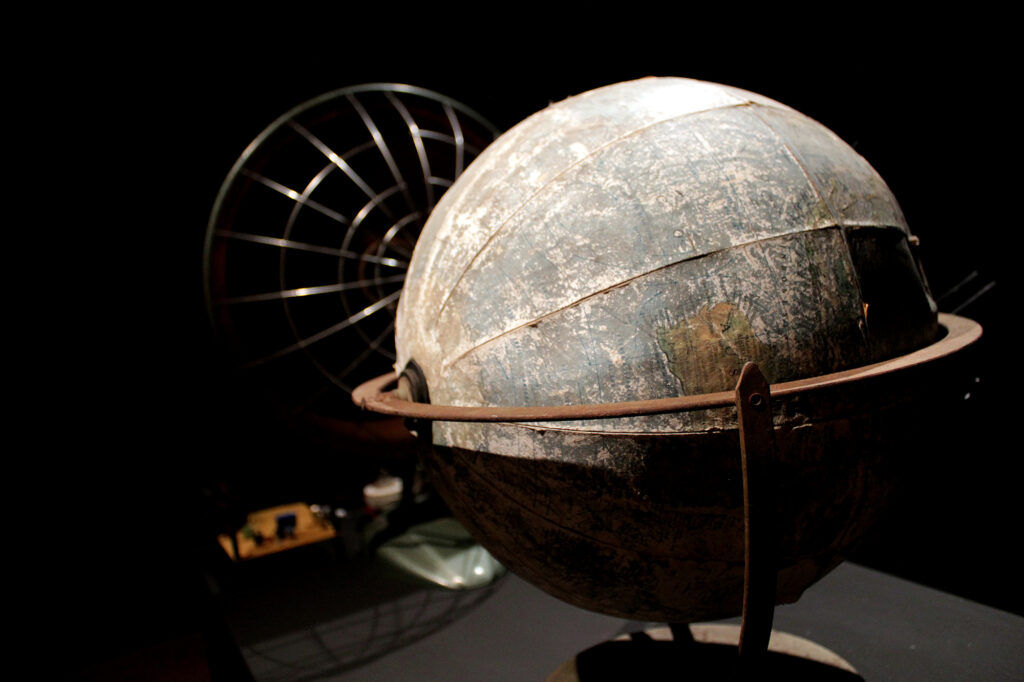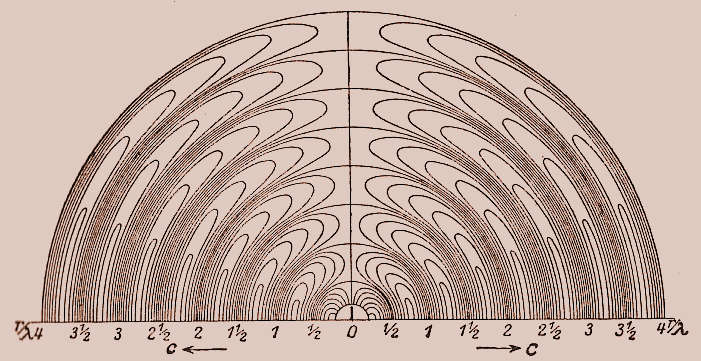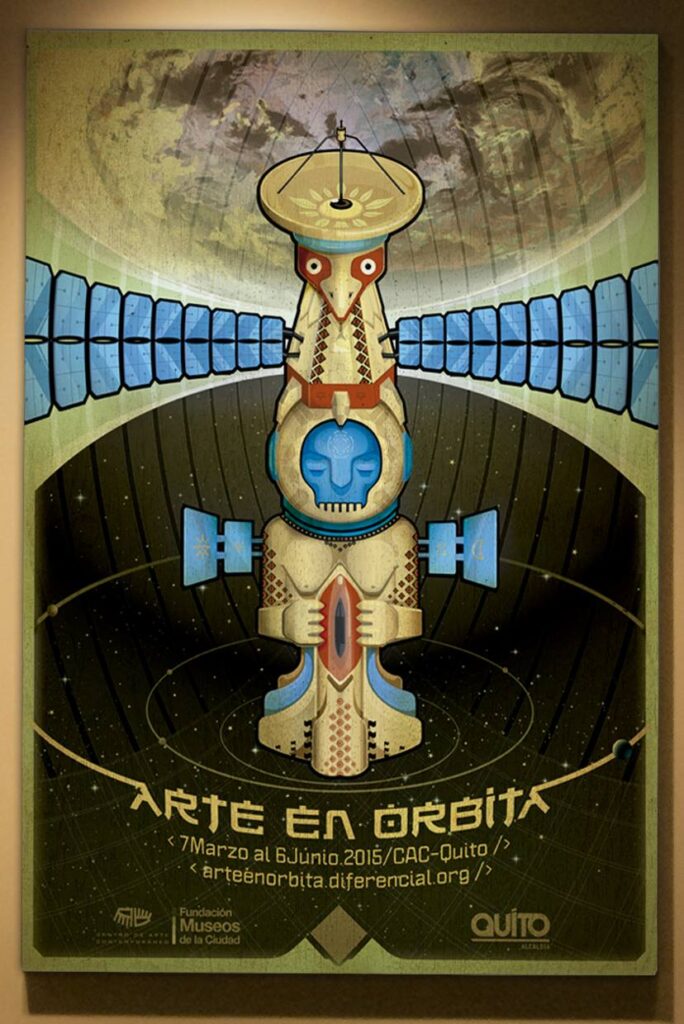
Hailku-a-Gaia
The poetics of Haiku generally rely on the astonishment and rapture that the contemplation of nature produces in the poet; it is not an excuse for human feelings but a poetic object in itself.
Haikus are short, vivid poems originating from Japan, predating Buddhism and Zen philosophy. They have a semantic structure of 5-7-5 and unfold touching the macro and microcosms.
Contemporary Haiku is more free within its brevity, consolidated as an autonomous poetic form with its own conventions and rules.
Gaia is the Earth mother, recognized in various cultures and mythologies as Tonanztin, Pachamama, Kundalini, Diana, Isis, Rea, Cibeles, Adonia, among others. These are feminine deities associated with constructing reality, present mystical forces in nature, and are known by different names that embody the essence of nurturing existence. Nature is seen as an immediate and everyday deity, directly interacting with and engaged in continuous dialogue. In Greek mythology, Gaia represents this concept and has been reinterpreted by James Lovelock as a contemporary scientific hypothesis, recognizing Earth as a self-regulating organism.
Haiku-a-Gaia is the model of a spherical Earth in the process of degradation.
“To a globe recovered from obsolescence, electromagnetic fields will be induced through electrostatic discharges, using an electric heater transformed into a parabolic dish antenna. An electronic circuit will amplify frequencies and increase its power in high voltage, fluctuating voltaic arcs like a plasma speaker.”
Heinrich Hertz performed the first radio transmission in 1888 using electrostatic discharges as pulses of high voltage, generating electromagnetic fields that propagate in space. These laboratory micro-lightning bolts replicated natural phenomena. “Spark-gap transmitters” were the primary method of wireless radio signal transmission for many years until the invention of high-vacuum tubes.
Through a text-to-voice application, Haikus-a-Gaia sent by people using Twitter will be recited. These electromagnetic signals will be transmitted to the rotating globe. An oscillating voltaic arc will emit photons. A thin film of water will be present between the parabolic system and the spherical earth, acting as a light filter; the micro prism-like droplets will diffract and amplify photons as luminous electromagnetic fields, creating a flow distributed as communicative quanta.
Gaia is at a crossroads: nature has been subjected to factual powers and obsolete technologies. We have the technological capacity to stop the degradation that ecosystems are suffering due to decadent technologies or energy abuse and extraction. The constant burning of fossil fuels is causing irreversible climate changes.
Haiku-a-Gaia is a poetic detachment with sustainable intentions towards an Eco-tropism from a mystical animistic recognition. It’s a Holo-movement without prejudices that advocates for open and free technology, with the ability to reverse issues and awaken the inquisitive mind about the mysteries of nature. It acknowledges the integration of territorial mappings from science and mysticism consecrated in experimentation with intuition, maintaining a positive intentionality towards relevant changes in consciousness.
The planetary representation as a holographic model, substantial metaphors about fractals, where each particle represents the entirety of the system, so that what affects one affects us all.
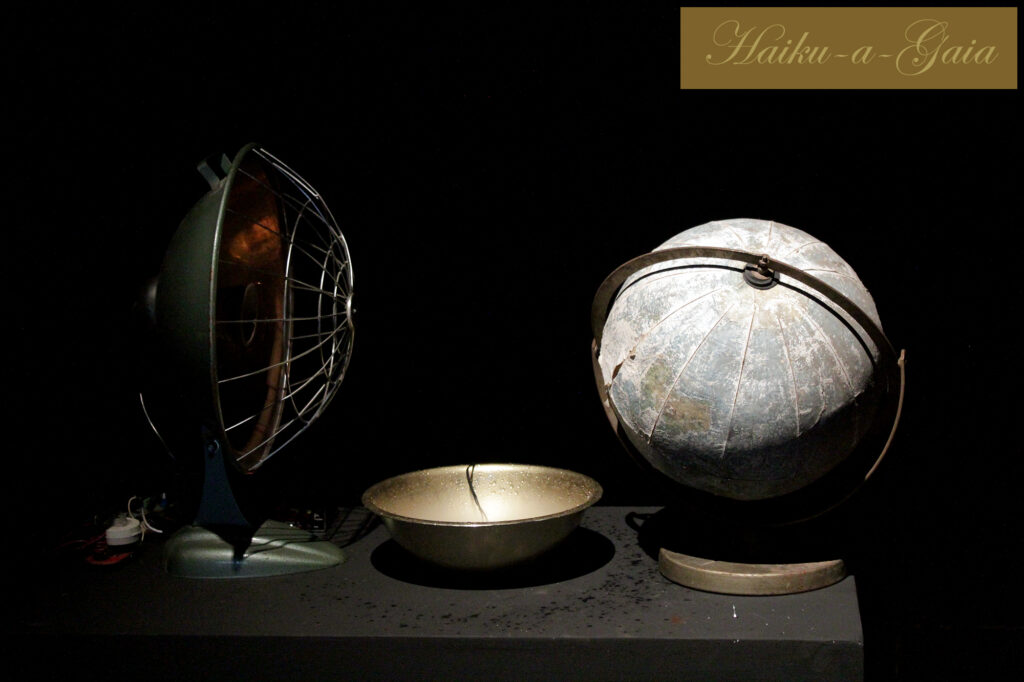
¿Es un imperio
esa luz que se apaga
o una luciérnaga?
Bajo el alero
el espejo no copia
más que la luna.
Jorge Luis Borges
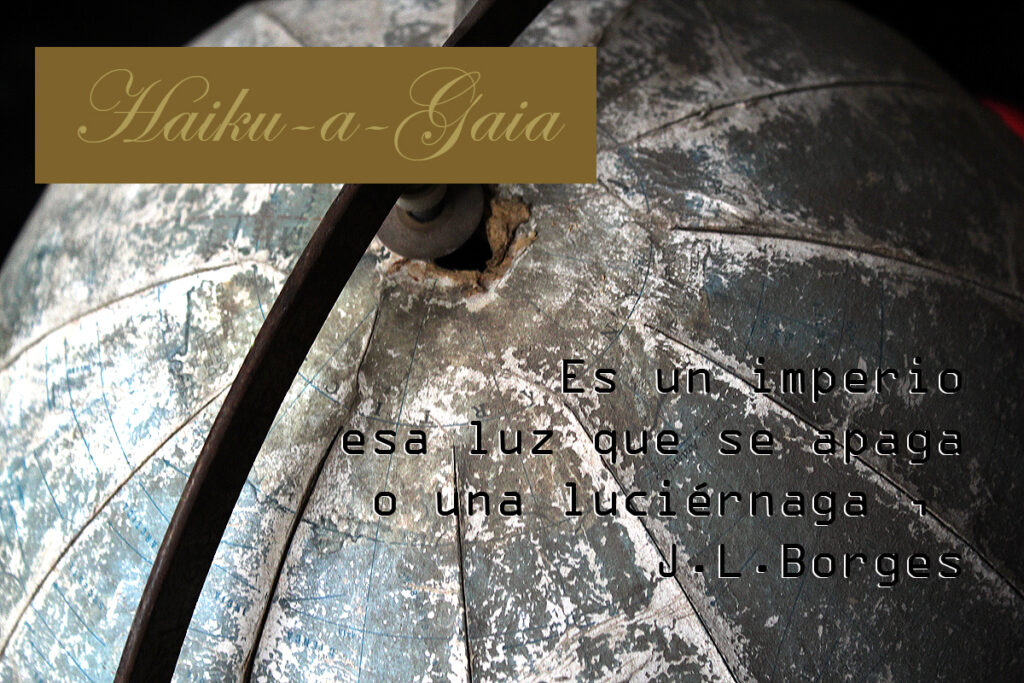
| La mariposa revolotea como si desesperara en este mundo Kabayashi Issa (1763-1828) Mi cuenco de mendigar Acepta hojas caídas Taneda Santoka | Las noches son breves ¿Cuántos días más aún por vivir? Shiki (1867-1902) Bajo la lluvia de verano El sendero Desapareció Yosa Buson (1715-1783) |
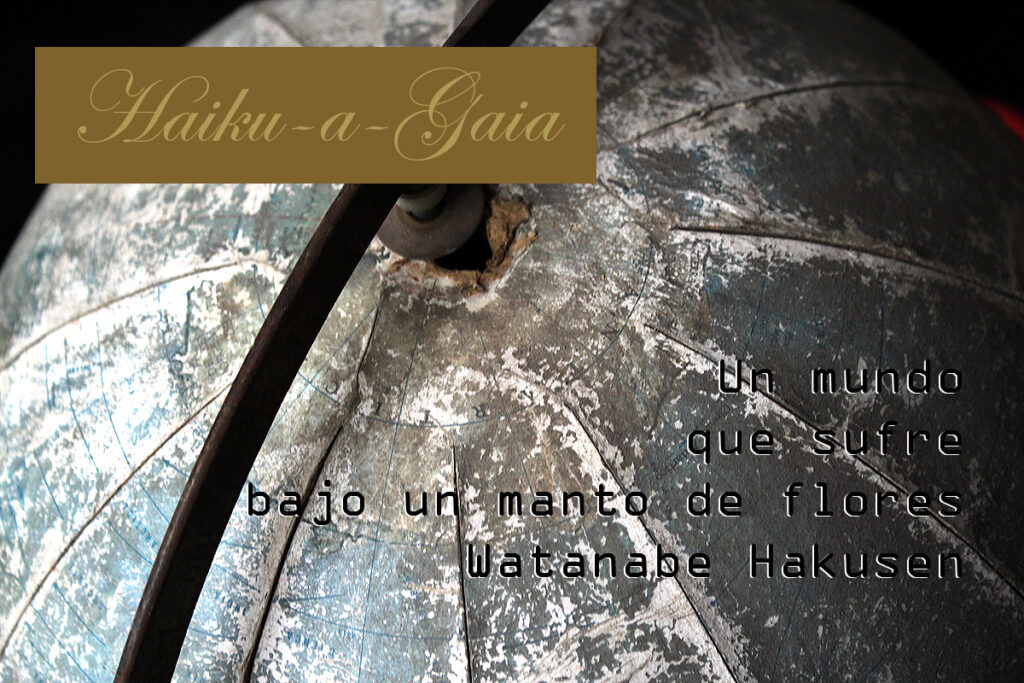
| Un mundo que sufre bajo un manto de flores Watanabe Hakusen (1913-1969) Este camino ya nadie lo recorre salvo el crepúsculo. Matsuo Basho | Pasó el ayer, pasó también el hoy, se va la primavera breve siesta y al despertar se fue la primavera Yosa Buson (1716-1784) |
La..KAz/PA . .KOZ.Mi:ka
Ez.. Noc.Tur-Na
Dez.Ti-No Bri/Llan/Te . Le(ja)No
bakteria.org
